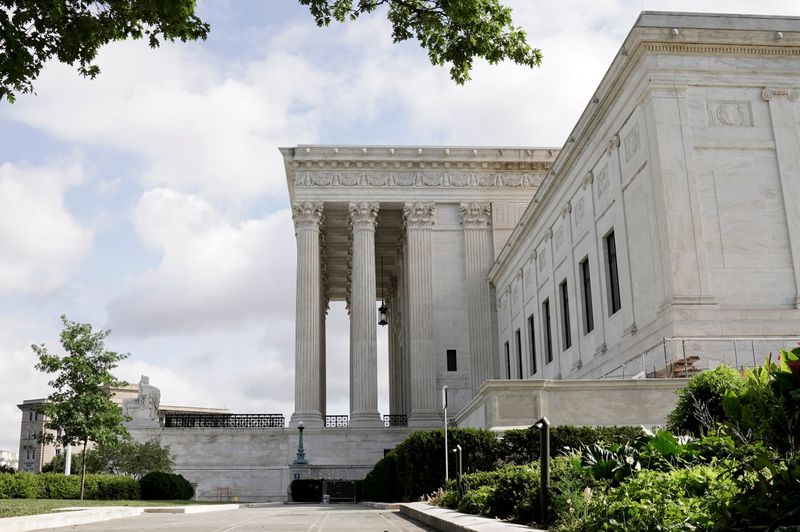By Lawrence Hurley
WASHINGTON (Reuters) -The U.S. Supreme Court on Friday narrowed the scope of a class action lawsuit against TransUnion (NYSE:TRU) in which thousands of people sought damages after the credit reporting company flagged their names as matching some on a government list of suspected terrorists and drug traffickers.
The justices ruled in TransUnion's appeal of a lower court decision that had upheld a jury verdict against the Chicago-based company in the lawsuit and had ordered it to pay $40 million in damages.
The 5-4 decision, authored by conservative Justice Brett Kavanaugh, stopped short of tossing out the jury verdict, but found there was insufficient evidence to show that all of the plaintiffs had been harmed by TransUnion's conduct, meaning the amount of damages will be reduced.
There were 8,185 class members in the litigation whose names matched ones on the government list. At trial it was established only that TransUnion had revealed that information publicly on 1,853 of them. The other 6,332 did not experience a "concrete injury," thus lacked the necessary legal standing to sue, Kavanaugh wrote.
"No concrete harm, no standing," Kavanaugh wrote.
On two other claims in the lawsuit, the court found, none of the plaintiffs aside from the lead plaintiff, a California man named Sergio Ramirez, could show they had suffered any harm.
"This outcome will have broad implications for class certification practice nationwide. It also will improve American businesses' ability to serve their customers and workers efficiently, with reduced litigation burden," said Stephen Newman, a lawyer representing TransUnion.
The business community has long sought to place limits on class action lawsuits, which can lead to big payouts to plaintiffs and their lawyers. TransUnion was backed in the case by business groups including the U.S. Chamber of Commerce as well as companies including The Home Depot Inc (NYSE:HD), eBay Inc (NASDAQ:EBAY), Facebook Inc (NASDAQ:FB) and Alphabet (NASDAQ:GOOGL) Inc's Google.
"We are pleased that the court upheld a jury trial verdict for 1,853 class members falsely labeled as terrorists by TransUnion. We are disappointed by the fact that we did not prevail as to the entire matter, but we are reviewing the next steps in light of the complicated opinion," said Samuel Issacharoff, a lawyer for the plaintiffs.
Credit reporting companies provide information on an individual's borrowing and bill-paying history to lenders and other businesses. TransUnion argued that the lawsuit, which focused on a federal law called the Fair Credit Reporting Act that requires consumer reporting agencies to provide correct information, should never have been certified as a class action.
TransUnion incorrectly identified Ramirez and other consumers as possible security threats.
Ramirez sued in 2012 after an incident the previous year at a Nissan (OTC:NSANY) automobile dealership. When the dealership performed a credit check using TransUnion, the report noted that Ramirez's name appeared to partially match two names on a federal list of people barred from conducting business in the United States for national security reasons. Neither person was Ramirez.
Although his wife was able to purchase a vehicle, Ramirez said he was shocked and embarrassed. He canceled an overseas vacation over concern about the list. After requesting a copy of his credit file, TransUnion sent him a separate mailing stating that his name was matched with two on the list.
The lawsuit noted that the mailing that mentioned the match incorrectly stated that such notification was not part of the credit report that creditors or employers would see. In fact, it was. TransUnion argued that merely being sent the mailings was not a concrete injury.

Conservative Justice Clarence Thomas joined the court's three liberal justices in dissent. Thomas wrote that "despite Congress' judgment that such misdeeds deserve redress, the majority decides that TransUnion's actions are so insignificant that the Constitution prohibits consumers from vindicating their rights in federal court. The Constitution does no such thing."
A jury in 2017 awarded damages of around $60 million to the class as a whole, including $52 million in punitive damages. The San Francisco-based 9th U.S. Circuit Court of Appeals in 2020 upheld this verdict but reduced the damages to about $40 million.